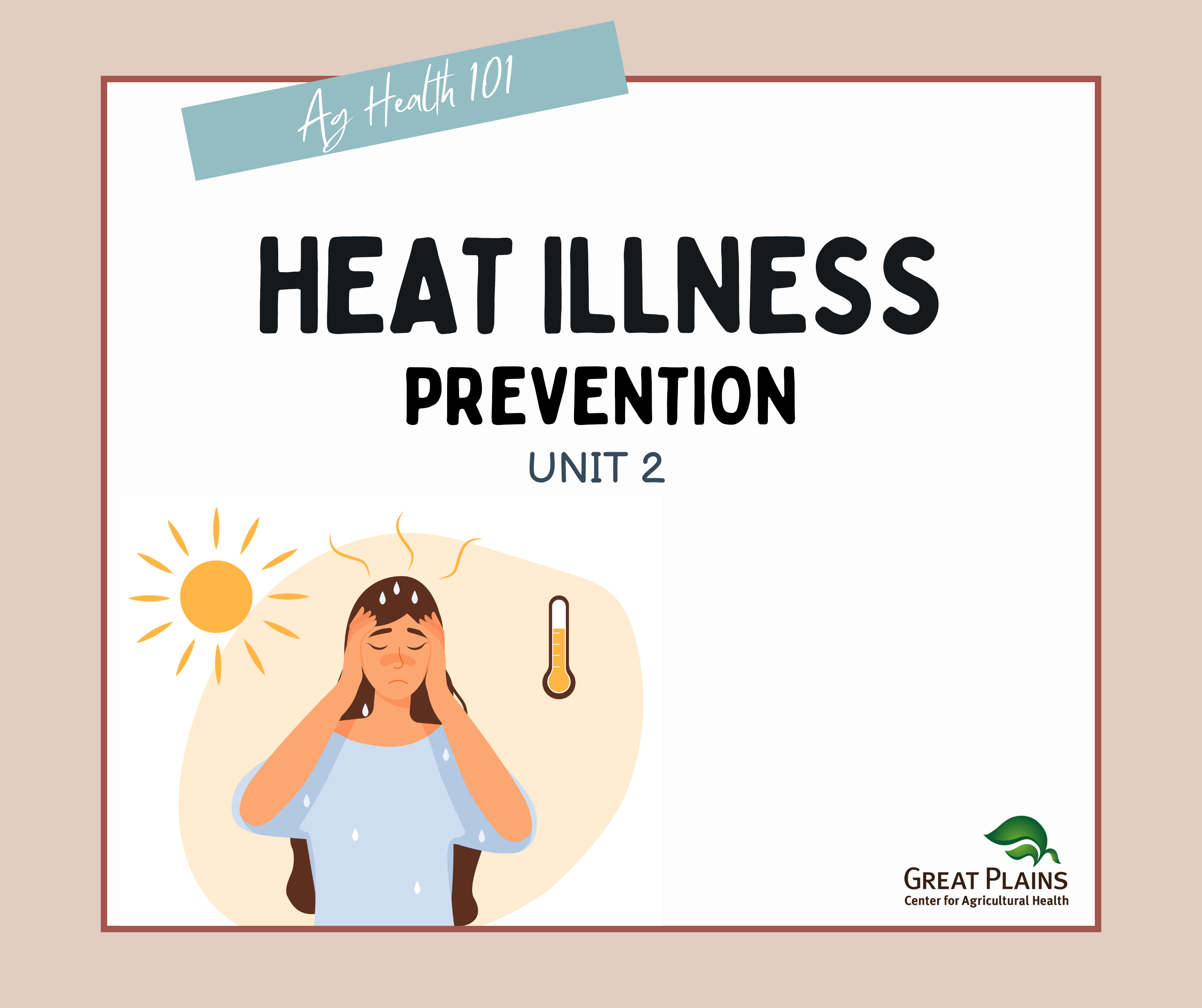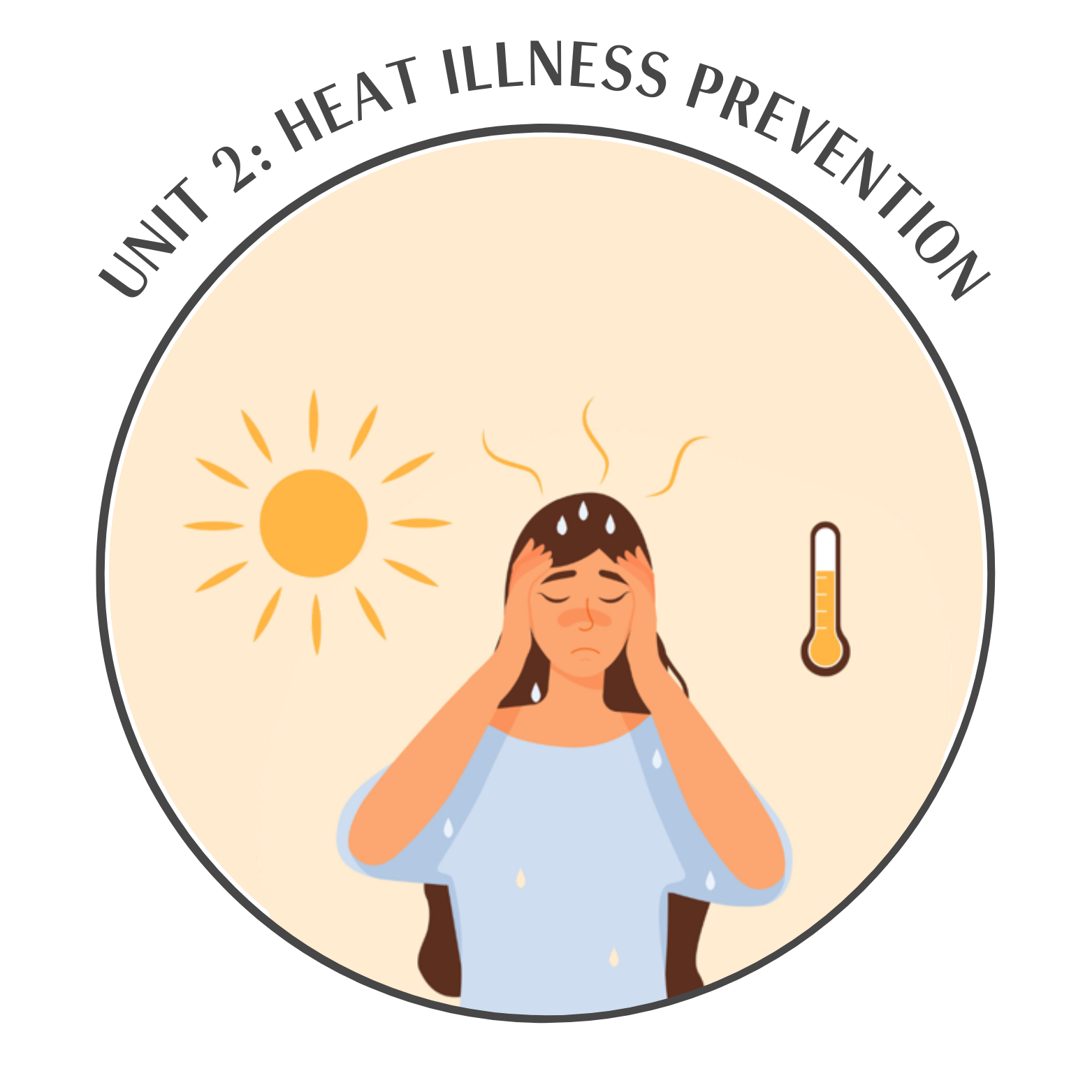
Unit 2.
Heat Illness Prevention
This unit contains four chapters related to heat illness recognition and prevention. Since a majority of ag work is performed outside, it is important to understand how the body reacts to heat and what illnesses occur from heat exposures. Each lesson gives listeners specific information needed to advise others on heat illness prevention. Don’t forget to look at the reference materials (bottom of the web page) for additional resources available to you to prevent heat illness in real time.
Once you complete this unit, we do suggest following it with the Sun Safety unit, which introduces additional concerns with working out of doors in the hot months.
Note: After completing this unit, we recommend completing Unit 3: Sun Safety, which introduces additional concerns with working outdoors during seasons with high temperatures.
Chapter 1: Heat Regulation
This brief chapter introduces you to how our body regulates heat. Understanding these mechanisms is important before we move on to understanding heat illnesses.
Heat Regulation
Chapter 2: Heat Illnesses
This chapter describes four types of heat illnesses. The last one we cover (heat stroke) can be life threatening. Since heat exhaustion and heat stroke affect a person’s ability to understand what is going on, it is important for everyone to understand the signs and symptoms so they can help respond when someone is exhibiting these signs.
Heat Illnesses
Chapter 3: Heat Illness Prevention – Monitoring and Preparation
Now that you understand the impact that heat has on the body, we identify tools to understand when work is risky and steps to take to prevent heat exhaustion and heat stroke. We discuss different heat indices, types of heat advisories, and how to plan work (scheduling time of day, rest cycles, and fluid consumption) to minimize heat illness.
Heat Illness Prevention - Monitoring and Preparation
Chapter 4: Hydration
This last chapter of this unit focuses on tools to help people assess their level of hydration. This audio file describes how to coach others to examine their urine to understand whether fluid intake is enough. Be sure to look at our Supporting Materials for visual illustrations of these guidelines.

